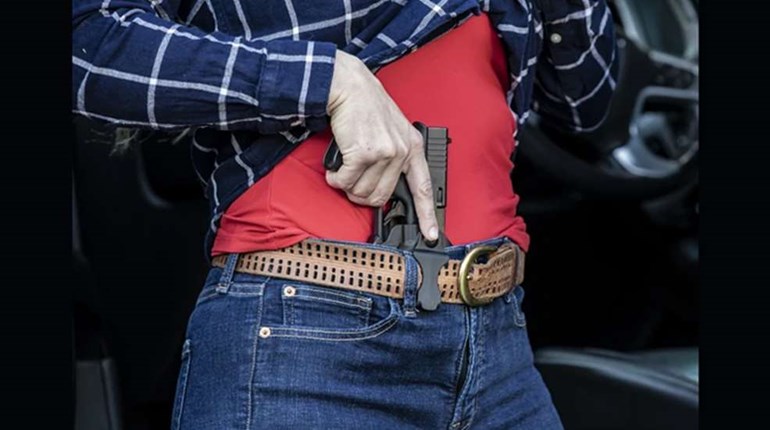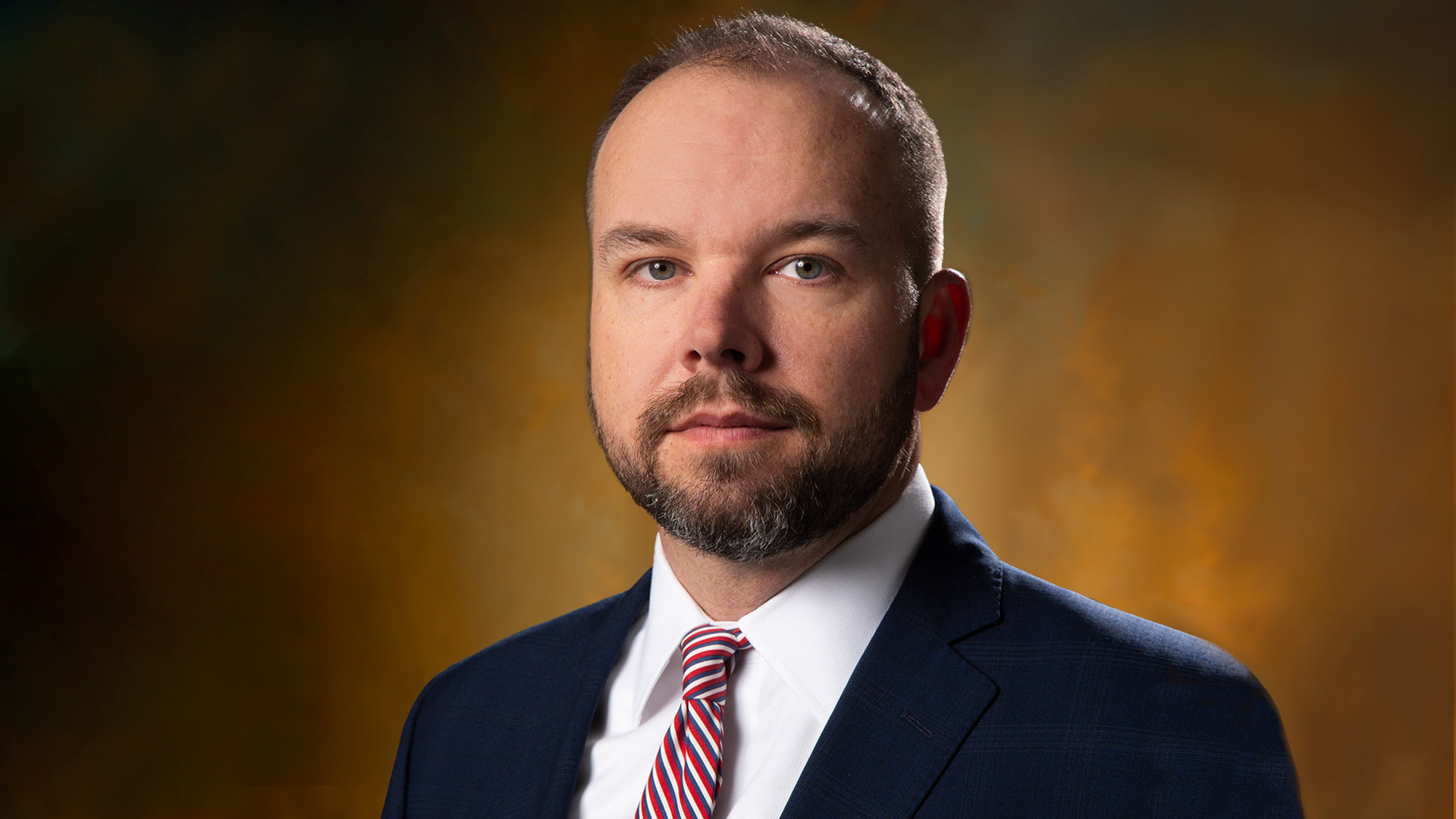
Just after sunrise on an especially warm summer morning in downtown Los Angeles two years ago, Kara’s best friend and neighbor was shot dead on his way to work. The tragedy served as a searing reminder that they lived in a zip code increasingly rampant with crime, and that wasn’t going to stop anytime soon.
But Kara wasn’t going to be the next victim in the increasingly lawless city she once treasured, in a country where she had worked hard to obtain citizenship and build a thriving business. She took gun-training classes and purchased her first handgun. Only that still didn’t feel like enough. “I was afraid every time I stepped outside my apartment; there was just this feeling of vulnerability I couldn’t shake,” she said. “I wasn’t going to live my life like this.”
Kara weaved through more than a year of immense bureaucratic red tape, forked out a slew of fees that amounted to almost $500, endured a painstaking application process, took even more mandated classes and was finally evaluated as an individual of “good moral character” by local authorities in California.
A total of 461 days after filing her initial application, Kara received her coveted concealed-carry weapons permit (CCW), a card that brought much relief, and a profound sense of responsibility, in one of America’s most-notorious crime-ridden hotspots.
Much to the contrary of mainstream-media portrayals, crime does not go up when law-abiding citizens own guns and carry concealed; in fact, studies over the last 15 years show that homicide rates in major cities accelerate when lawful citizens are prohibited from exercising such constitutional freedoms.
And there is no place more critical to have responsible gun owners than in our nation’s most-volatile pockets—places where law enforcement is often slow to, or unable to, respond. Unfortunately, the officials who typically run local governments in these disastrous zip codes are often only interested in taking away American citizens’ Second Amendment-enumerated rights.
Such is why Kara is hardly alone in her long struggle for a CCW in Los Angeles.
Roadblocks placed to stop people like Kara from utilizing this right include high fees. A permit in Los Angeles, for example, costs upward of $500. In contrast, a majority of states don’t require a carry permit at all. This means that citizens in high-crime areas are less likely to have the equal opportunity to protect themselves—many have no chance at all.
Ever since the U.S. Supreme Court ruled in New York State Rifle & Pistol Association v. Bruen (2022) that New York’s proper-cause requirement for obtaining a carry permit violates the 14th Amendment, as citizens’ Second Amendment rights do extend outside of their homes, some licensing authorities in a handful of states have simply gotten more innovative as they work to prevent citizens from carrying for self-defense; for example, by broadening “sensitive-place” restrictions to basically include everywhere a person might go in public, states like New York, New Jersey and California, are trying to make it impossible for citizens to carry guns for self-defense purposes.
Last year, Vince Ricci, a Los Angeles homeowner, husband and father to an infant, was followed by two armed men to his door. Ricci, worried about the wellbeing of his wife, baby daughter and the family’s nanny, pulled his concealed handgun. Shots were fired, but Ricci and his family were safe.
How did Los Angeles law enforcement respond to Ricci’s heroic act? They took away his concealed-carry permit under the guise that he “yelled” at officers following the highly traumatic event.
Still, more and more California gun owners are seeking the coveted concealed-carry permits despite California Gov. Gavin Newsom (D) and state legislators’ moves to further restrict where firearms are allowed to be carried by lawfully armed citizens.
Even many citizens in northern Marin County, which often suffers the spillover of San Francisco’s high crime, have recently turned to self-protection. Local firearms instructors point out that up until 2022, a typical class held a couple of times a month would be lucky to bring in two students. But today, class sizes have jumped 600%, with primarily working professionals—teachers, engineers and tradespeople—seeking concealed-carry permits. It’s a massive change given that Marin County, now inundated with applications, only issued 138 permits from 2012 to 2021, and neighboring San Francisco gave out just 11 in that same period.
Of course, it isn’t smooth sailing for applicants. Many now wait months and months for any return correspondence. In nearby Santa Clara County, applicants were told when following up after months of silence that the issuing office is in the process of implementing new software to supposedly “streamline” the process.
Nonetheless, many are holding firm in the fight for their constitutional rights.
“We can’t give up,” one L.A.-based attorney, Julio, who eventually received a concealed-carry permit in 2023, noted. “This is the one way to protect our property and deter crime.”
New Yorkers, too, are following suit. In 2020, the murder rate spiked by 41%, and the number of shootings rose 95%. It is no wonder residents feared becoming another statistic and sought to take matters into their own hands. According to a 2023 Siena College Research Institute poll, 12% of New York residents purchased a firearm for self-protection within the previous year.
Moreover, the demographic of those carrying can’t be contained to a single stereotype—there are politicians, new mothers, nurses, bodega workers … .
“It does give me a sense of security. I hope I never have to use it, but knowing it’s there to protect myself or other shoppers matters,” said one deli worker in the Chelsea neighborhood. “You wouldn’t believe what we have to put up with in here sometimes. It’s frightening.”
However, many of those carrying are choosing to do it quietly. The United Bodegas of America (UBA) announced in December 2023 that it had assembled a “secret society” months earlier to aid bodega workers and owners in legally obtaining concealed-carry permits.
“Anyone that’s out there looking to rob us, hurt us, kill us—beware,” said Fernando Mateo, a spokesperson for the UBA. “You may be walking into the wrong bodega because now we have the same firepower you have.”
The UBA boasts around 15,000 members, yet how many have opted to carry concealed remains confidential.
But, of course, the quest for a permit remains a rough road. Despite being in a post-Bruen era, an analysis of New York City data shows that the NYPD gave out fewer new licenses in 2022 than the year prior. In 2021, the police, in charge of the vetting process, received 4,663 applications and approved 56%, some 2,591. The following year, 7,260 individuals applied, but the NYPD only sanctioned 21%, even though those who sent their paperwork in the second half of the year were not required to jump through the “proper-cause” hoop.
Meanwhile, 95 miles away in Philadelphia, which experienced a steady rise in crime between 2016 and 2022, the city is now doling out three times the number of permits it did a couple of years ago. The sheriff’s office says it has a “full waiting list” for classroom and range classes designed for those seeking a concealed-carry permit.
Nevertheless, carrying in a volatile zone can come down to your life or a criminal’s.
For example, a Pennsylvania district attorney determined in April that a lawful concealed-carry permit holder would not be subject to criminal charges. This individual had shot an armed attacker while paying tribute to a friend laid to rest in a Pennsylvania cemetery located just outside of Philadelphia.
“[Arian] Davis was under attack and in danger of being killed when he fired his legally owned weapon to end the threat. For these reasons, I conclude that this was a justifiable shooting, and therefore, no criminal charges are warranted,” Kevin R. Steele, Montgomery County’s DA, stated in a press release.
Davis, who knew the assailant, suffered multiple gunshot wounds to his face, hand and leg but, thanks to his personal-defense gun, was able to save his life and that of a friend sitting beside him.
With Chicago becoming the country’s most-murderous city in 2020, as homicide figures ascended 50% in the pandemic year alone, residents there and in other parts of the often-ominous Cook County aren’t shying away from seeking a permit. According to data from the Illinois State Police, the number of women receiving a permit has increased yearly since 2014, from around 800 to over 1,500 annually today. The Chicago Tribune attributes this surge to the notion that many are “spurred by a growing concern for their safety” in neighborhoods where crime is climbing. It marks the most-extensive expansion of any demographic in Cook County.
“It’s like a part of me now,” Vernetta Robinzine, a 50-something resident of the Beverly neighborhood on Chicago’s Far South Side, told the paper. “I just didn’t want to feel like a victim.”
Meanwhile, in Detroit, in spite of a shocking nine-month wait for a permit in Wayne County, people who are lawfully carrying concealed are also saving lives.
Last March, a man who tried to rob another customer at gunpoint inside a liquor store was disarmed when a concealed-carry holder, also present in the store, shot him, which led to the culprit’s quick arrest.
Even in the state of Washington, the number of concealed-carry permits granted in the past year surged from 57,000 to about 700,000, as per data from the Department of Licensing.
“The way people here vote, you’d think they want to have nothing to do with guns,” said Dave Workman, editor of a gun-rights publication in the state. “That couldn’t be further from the reality.”
While national figures indicate that the number of Americans with concealed-carry permits dipped slightly in 2023, most analysts explain that the number of those lawfully carrying firearms for self-defense likely rose overall, given that 29 states have now implemented legislation that does not require a lawful, eligible resident to attain a permit from the government; however, many still do apply so that they can legally carry in states with reciprocity agreements with their state. In the 23 states without constitutional-carry laws, there was a noticeable uptick in concealed-carry permits.
And, regarding demographics, reports indicate that those in the black community are most likely to be affected by violence nationwide, so it is not surprising that they are also more likely to be bearing arms to protect themselves. A recent NBC poll showed that in August 2019, 24% of black voters said they or someone in their household owned a firearm. By November 2023, that figure had jumped to 41%.
Women, too, are increasingly exercising their constitutional rights. Several women testified to Congress at a hearing entitled “Second Amendment Rights Empower Women’s Rights” late last year, including survivors of domestic violence and abuse, on the dangers of gun control.
“My journey from victim to survivor to advocate has led me to this moment today,” said Geneva Solomon, a California-based domestic abuse survivor-turned-firearms trainer. “As a black woman, this is not a matter of imagination. It was my lived experience.”
Several other women similarly highlighted that acquiring firearms, and the knowledge to own them responsibly, grants them the ability to protect themselves and their children and empowers them to fearlessly shape their futures.
“Female firearm ownership continues to grow in the United States. Women are turning to themselves to be their own first responders,” said Rep. Andy Biggs (R-Ariz.), adding that many Democrat-run states, which have “woke” prosecutors and policies, “fail to realize how more gun control only harms and impacts the vulnerable populations they claim they want to protect.”
The NBC poll also found that 41% of Democrats say they or someone under their roof owns a gun. Less than 20 years ago, that figure was below 33%; moreover, a 2021 Quinnipiac University national poll found that support for stricter gun legislation overall has fallen.
So, this begs the question: Will gun-control-promoting politicians continue to pander to the gun-control crowd, or will they wake up and realize that a growing number of their constituents are actually in favor of their right to bear arms?
Perhaps someday, gun-control proponents will admit that those who lawfully carry firearms are not the problem but may be a critical part of the solution. Until then, freedom-loving Americans must remain vigilant in fighting for our constitutional freedoms.

































